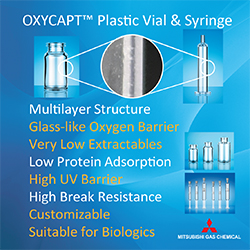Ocean Biomedical’s mRNA-based Vaccine Candidate Generates Over 90% Killing of Malaria Parasites in Non-human Primates, Demonstrating Broad Potential to Address Global & Emerging US Malaria Challenges
Ocean Biomedical, Inc. recently announced it is focusing its multi-pronged malaria program to address the chronic malaria crisis in sub-Saharan Africa while recognizing newly emerging global malaria challenges.
Based on discoveries by Scientific Co-founder, Jonathan Kurtis, MD, PhD, Ocean Biomedical is working on a multivalent mRNA-based malaria vaccine with potential to target several stages in the malaria cycle. Additionally, the company has discovered a new therapeutic approach with the potential to launch a whole new class of anti-malarials. Promising results from the malaria program include: 1) an mRNA-based vaccine that generates >90% killing of malaria parasites in non-human primates, 2) a monoclonal antibody that kills 94%-99% of malaria parasites in culture, and 3) a small molecule drug that kills 100% of parasites at low nanomolar concentrations. Multiple U.S. and global patents are held by Ocean Biomedical for both the vaccine and therapeutic approaches.
“Inducing parasite cell death via targeting PfGARP is a novel approach that has potential to launch a whole new class of anti-malarial interventions, including mRNA-based vaccines, small molecule drugs and our current monoclonal antibody,” said Dr. Kurtis. “Our monoclonal antibody and small molecule drug comes at a critical time because malaria parasites are developing resistance to current frontline therapeutics, and the currently approved vaccine offers only very limited protection.”
Malaria is the greatest single-agent killer of children on the planet, killing approximately 627,000 individuals in 2022. In countries where malaria is still prominent, primarily in sub-Saharan Africa, families are devastated by the illness generation after generation, not only losing children but facing a lifetime of chronic physical and economic struggle for many of those who “survive” the disease. Malaria continues to exact an ongoing toll that should be recognized as a first-order crisis but has failed to generate commensurate concern and funding because it affects the most marginalized individuals on the planet. Though some progress has been made in the recent decade, the first approved vaccine has proven to be less effective at preventing severe malaria in infants than traditional bed nets. A growing concern is that current malaria treatments are showing alarming signs of losing efficacy and there are no new approved treatments currently in reserve.
A recent uptick in malaria cases in Florida and Texas have drawn attention to changing conditions that are expanding current malaria endemic zones. In a 2022 report, the World Health Organization warned of a surge in mosquito-borne diseases due to global warming, which is increasing vector survival and biting rates. Already malaria cases are popping up in places that haven’t had to grapple with major outbreaks of the disease in over 100 years. A cluster of cases in the southern US has caused alarm. Every year, the US sees around 2,000 travel-related malaria cases, but the recent cases are unusual because they have resulted from mosquito-based transmission occurring inside the US.
Adding to the climate concerns, growing parasite resistance to current Artemisinin-based drug therapies is threatening recent progress achieved by anti-malarial campaigns, underscoring the urgent need to identify new anti-malarial drugs. To address rising resistance to current treatments, and the potential expansion of malaria zones, a better, more fully effective vaccine is needed, and new treatment approaches for severe malaria will likely be needed before the end of the decade.
“As the current drugs begin to fade, we are pleased to have a small molecule drug candidate that could offer a treatment option for severe malaria patients, and a monoclonal antibody that would be well-suited to use for malaria prophylaxis for travelers, military deployments, and short-term exposure areas,” commented Ocean Biomedical’s Chairman and Co-founder, Dr. Chirinjeev Kathuria.
Ocean Biomedical’s novel malaria vaccine program is based on groundbreaking discoveries by Dr. Kurtis that have revealed new insights into how malaria parasites maintain homeostasis in their hosts. Examining the differences between naturally resistant children and naturally susceptible children, Dr. Kurtis has discovered 3 antigens that are active in the red blood cell phase, controlling invasion of the cell, survival in the cell, and the egress of parasites into the bloodstream. Controlling the activity of those antigens, especially PfGARP, has shown great potential for controlling the ability of the parasite to survive and duplicate.
Building on his groundbreaking discovery that PfGARP is potentially a highly effective vaccine target for malaria, Dr. Kurtis has now discovered and produced a monoclonal antibody that binds to PfGARP and triggers the malaria parasite to kill itself. This recently patented approach will allow Dr. Kurtis’ team to pursue development of this monoclonal antibody as both a potential therapeutic drug for individuals with severe malaria infection as well as a potential short-term prophylactic treatment to prevent malaria infection in travelers, overseas deployed military and government personnel, and individuals living in areas with short malaria transmission seasons.
The data generated by his lab has demonstrated that the family of small molecule candidates in development by Dr. Kurtis’ team are highly specific for PfGARP binding, are non-toxic in multiple in vitro and in vivo systems, have excellent pharmacokinetic properties, and rapidly clear parasitemia in animal models. This combination of discoveries has allowed Ocean Biomedical to begin simultaneously pursuing the development of a novel malaria vaccine, and novel malaria therapeutics.
“Like all of Ocean Biomedical’s programs, this malaria treatment has the potential to meet large, unmet medical needs that can benefit our shareholders, and a large population globally,” said one of Ocean Biomedical’s Directors, Suren Ajjarapu.
“With the rising resistance to Artemisinin-based drugs in sub-Saharan Africa, it is imperative that we get new malaria therapeutics into the drug development pipeline,” said Elizabeth Ng, Ocean Biomedical’s CEO. “We are pleased to be working on multiple solutions to this ongoing global health crisis, and to have the opportunity to share it with some of the nation’s top malaria researchers.”
Ocean Biomedical, Inc. is a Providence, Rhode Island-based biopharma company with an innovative business model that accelerates the development and commercialization of scientifically compelling assets from research universities and medical centers. Ocean Biomedical deploys the funding and expertise to move new therapeutic candidates efficiently from the laboratory to the clinic, to the world. Ocean Biomedical is currently developing five promising discoveries that have the potential to achieve life-changing outcomes in lung cancer, brain cancer, pulmonary fibrosis, and the prevention and treatment of malaria. The Ocean Biomedical team is working on solving some of the world’s toughest problems, for the people who need it most. For more information, visit www.oceanbiomedical.com.
Total Page Views: 1831













